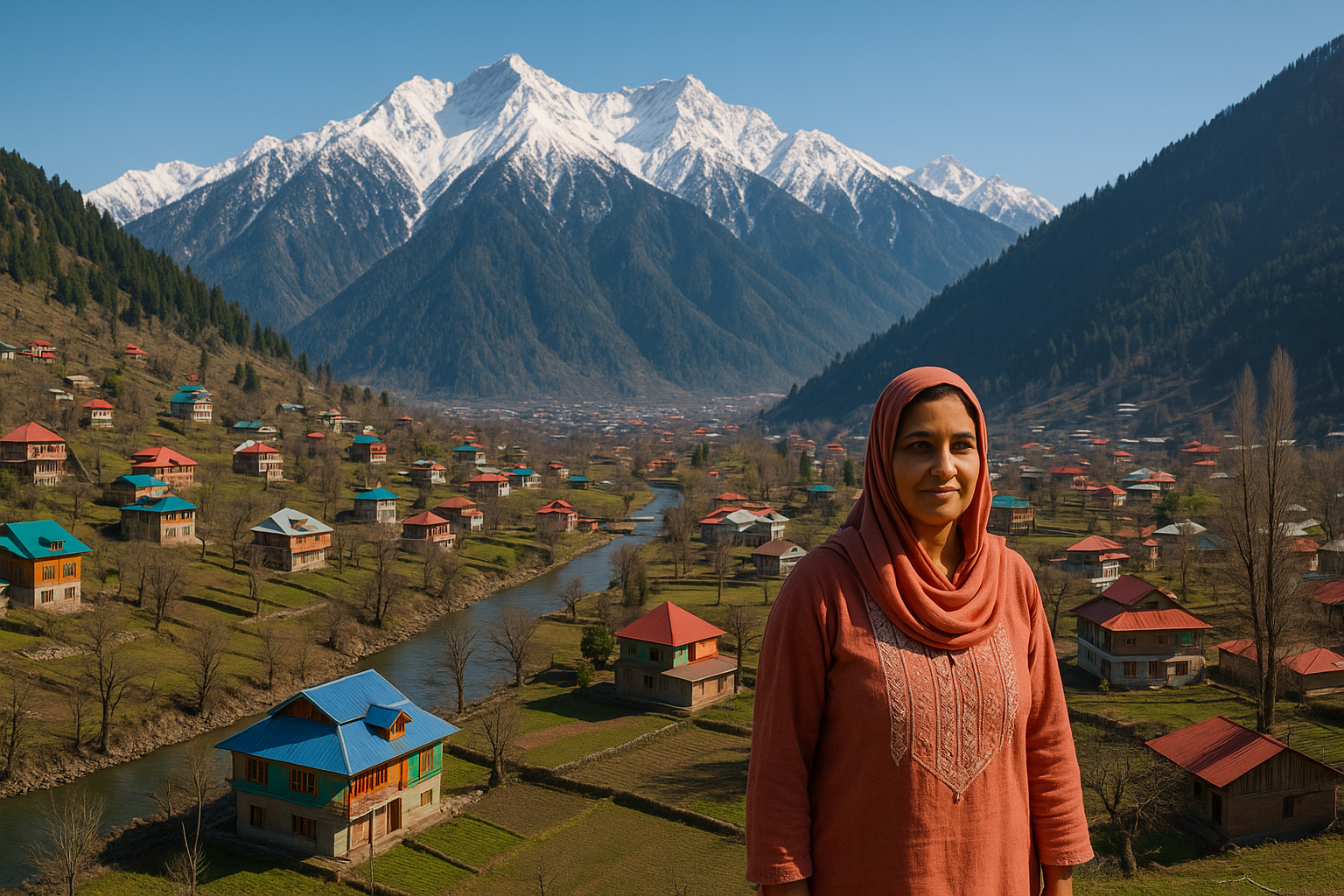When New Delhi revoked Article 370 in August 2019, the move triggered heated debate across India and beyond. Six years later, the Union Territory of Jammu and Kashmir looks markedly different. For all the controversy that surrounded the decision, the region today shows measurable progress in three domains that matter most to everyday lives: clean water, fast internet, and economic opportunity.
From Scarcity to Access: The Water Story
The Jal Jeevan Mission has rewritten the script for rural Kashmir. In 2019, fewer than one in three households had piped water. By 2025, that figure jumped to 81.06%, outpacing the national average. Out of 19.23 lakh rural households, 15.59 lakh now enjoy functional tap connections, a leap of nearly 10 lakh homes in just six years.
The results aren’t confined to showpiece districts. While Srinagar and Ganderbal boast 100% coverage, rural strongholds like Anantnag, Shopian, Reasi, and Budgam report coverage between 89% and 93%. Even Baramulla and Kupwara—long seen as laggards—now stand above 80%. For women in particular, this shift has been transformative, sparing them the drudgery of carrying water long distances. Since 2021, the central government has poured in more than ₹5,900 crore, making this rollout one of the largest social investments in the UT’s history.
Digital Kashmir: From Blackout to Bandwidth
Nothing symbolised the post-370 transition more starkly than Kashmir’s internet shutdown. For 17 months, residents navigated a digital blackout that cut off students, traders, and journalists alike. But by February 2021, high-speed 4G returned across the Union Territory, following trial runs in Ganderbal and Udhampur.
Since then, telecom providers—state-run and private—have expanded coverage deep into rural valleys. The exact tower counts vary across reports, but the broader trend is clear: fewer “black spots,” more villages connected, and growing access to both 4G and 5G services. For a region once defined by digital isolation, the shift has opened classrooms, marketplaces, and job portals with unprecedented speed.
The Startup Surge: Women at the Forefront
Perhaps the least expected outcome of the 2019 changes has been the boom in entrepreneurship. According to official figures, the number of registered startups in Jammu and Kashmir surged from 237 in 2020 to 917 in 2024—a 287% increase. Of these, 333 are led by women, a striking signal of shifting social norms.
The government is banking on this momentum. Its Startup Policy 2024–2027 promises 2,000 new ventures by 2027, supported by a ₹250 crore venture capital fund, seeded with ₹25 crore from the UT administration. The sectors are diverse—from IT services and skill training to engineering and construction. What unites them is connectivity: with reliable internet, young Kashmiris can now sell to markets in Delhi, Mumbai, or Dubai as easily as their counterparts elsewhere in India.
A New Arc for Kashmir
The story of Article 370’s aftermath is still being written. Challenges of unemployment, security, and political reconciliation remain. But the facts on the ground—more homes with water, more villages with high-speed internet, more women running companies—show a region edging closer to mainstream India’s economic life.
For New Delhi, these outcomes bolster the argument that integration delivers dividends. For Kashmiris, they signal that everyday life—fetching water, logging on, starting a business—no longer has to be defined by scarcity. That may prove to be the most consequential legacy of August 2019.


Thank you for sharing such a well-structured and easy-to-digest post. It’s not always easy to find content that strikes the right balance between informative and engaging, but this piece really delivered. I appreciated how each section built on the last without overwhelming the reader. Even though I’ve come across similar topics before, the way you presented the information here made it more approachable. I’ll definitely be returning to this as a reference point. It’s the kind of post that’s genuinely helpful no matter your level of experience with the subject. Looking forward to reading more of your work—keep it up!